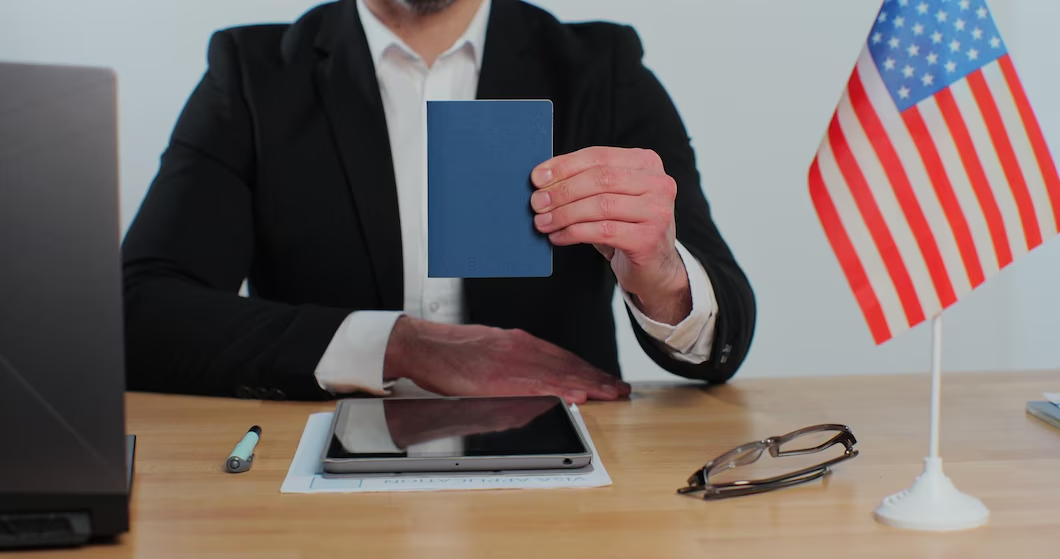Introduction
Visa law governs the rules and regulations surrounding the issuance of visas, which are essential for travel, work, study, and permanent residence in foreign countries. As globalization increases, understanding visa law becomes crucial for individuals and businesses alike. This article will explore the intricacies of visa law, the types of visas available, the application processes, compliance issues, recent changes, and future trends.
Chapter 1: Understanding Visa Law
1.1 Historical Background
Visa law has its roots in the need for governments to regulate the entry of foreign nationals. Initially, visas were informal agreements between countries. However, as international travel increased, formal visa regulations emerged, leading to the complex legal frameworks we see today.
1.2 Key Legislation Influencing Visa Law
In the United States, the Immigration and Nationality Act (INA) is a foundational piece of legislation that outlines visa categories, eligibility, and procedures. Other countries have their own governing laws, which often reflect their immigration policies and economic needs.
1.3 Role of International Agreements
International agreements, such as the Schengen Agreement in Europe, allow for visa-free travel among member countries, while treaties like the U.S.-Canada Safe Third Country Agreement dictate how asylum seekers are processed. These agreements highlight the interplay between domestic law and international cooperation.
Chapter 2: Types of Visas
Visa categories can be broadly divided into two groups: non-immigrant and immigrant visas. Each category serves different purposes and has specific requirements.
2.1 Non-Immigrant Visas
Non-immigrant visas are temporary and include various types:
- Tourist Visas: Allow individuals to visit for leisure or business without engaging in employment.
- Student Visas: Enable international students to study at accredited institutions. In the U.S., the F-1 visa is a common example.
- Work Visas: Permit individuals to work in specific roles. Notable examples include:
- H-1B Visa: For specialty occupations requiring specialized knowledge.
- L-1 Visa: For intracompany transferees.
2.2 Immigrant Visas
Immigrant visas provide a pathway to permanent residency:
- Family-Sponsored Visas: Allow U.S. citizens and permanent residents to sponsor family members.
- Employment-Based Visas: Enable employers to sponsor workers based on skills and qualifications.
- Diversity Visas: Offered through a lottery system to individuals from underrepresented countries.
2.3 Special Circumstances
Certain situations require specific visa types:
- Asylum and Refugee Visas: Designed for individuals fleeing persecution.
- Temporary Protected Status (TPS): Provides temporary relief from deportation for individuals from designated countries experiencing crises.

Chapter 3: Visa Application Process
3.1 Overview of the Process
The visa application process can be daunting. It typically involves several steps:
- Determine Visa Type: Identify the appropriate visa category based on your purpose of travel.
- Complete the Application Form: Most countries require a standardized application form (e.g., DS-160 for U.S. visas).
- Gather Required Documentation: This may include financial statements, employment letters, academic transcripts, and proof of ties to your home country.
- Schedule an Interview: Many visa applications require an in-person interview at a consulate or embassy.
- Pay Fees: Visa applications often come with associated fees that vary by type and country.
3.2 Common Challenges
Applicants may face numerous challenges during the process:
- Incomplete Applications: Failing to provide all required documentation can lead to delays or denials.
- Interview Anxiety: Many applicants feel nervous about the interview process, which can impact their performance.
- Changing Regulations: Visa laws and requirements can change rapidly, making it essential to stay informed.
3.3 Tips for a Successful Application
- Start Early: Begin the application process well in advance of your intended travel date.
- Be Honest: Provide accurate information; discrepancies can lead to denials.
- Prepare for the Interview: Familiarize yourself with common interview questions and practice your responses.
Chapter 4: Visa Compliance and Regulations
4.1 Importance of Compliance
Once a visa is granted, maintaining compliance with its terms is crucial. Visa holders must adhere to the conditions specified, including the duration of stay and permissible activities.
4.2 Consequences of Violations
Violating visa conditions can have severe consequences:
- Deportation: Individuals may be forcibly removed from the country if found in violation.
- Future Ineligibility: Violations can lead to bans on future visa applications, impacting opportunities for travel or work.
4.3 Maintaining Lawful Status
Visa holders should take proactive steps to maintain lawful status, such as:
- Understanding Expiration Dates: Keep track of visa expiration and renewal timelines.
- Document Changes: Report any changes in employment, education, or personal circumstances to immigration authorities.
Chapter 5: Recent Changes in Visa Law
5.1 Overview of Recent Policy Changes
In recent years, various political and social factors have influenced visa law. Notable changes include:
- Travel Bans: Certain countries have faced travel restrictions, affecting the visa application process.
- Work Visa Reforms: Some countries have adjusted their work visa policies to attract skilled labor while tightening restrictions on unskilled workers.
5.2 Impact of the Political Climate
The political climate significantly affects visa laws. For example, during times of increased nationalism, governments may impose stricter immigration policies, impacting the number of visas issued.
5.3 Emerging Trends
- Digital Nomad Visas: Several countries are introducing visas tailored for remote workers, allowing them to live abroad while employed by foreign companies.
- Green Card Alternatives: Some countries are exploring pathways to permanent residency through investment or innovation.
Chapter 6: Legal Assistance and Representation
6.1 Role of Immigration Attorneys
Navigating visa law can be complex, and the expertise of immigration attorneys can be invaluable. They can help with:
- Application Preparation: Ensuring that all documentation is complete and accurate.
- Legal Advice: Offering guidance on eligibility and compliance issues.
- Representation: Acting on behalf of clients in legal proceedings or appeals.
6.2 When to Seek Legal Advice
Individuals should consider seeking legal advice in situations such as:
- Complex Cases: Applications involving criminal records or previous immigration violations.
- Changes in Circumstances: Significant changes in personal circumstances that could affect visa status.
6.3 Resources for Finding Legal Help
- Bar Associations: Many local and state bar associations have directories of immigration attorneys.
- Nonprofit Organizations: Numerous nonprofit organizations offer legal assistance for low-income applicants.
Chapter 7: The Future of Visa Law
7.1 Predictions for Future Trends
The landscape of visa law is likely to evolve significantly in the coming years. Key predictions include:
- Increased Digitization: Expect more online applications and digital tracking systems.
- Global Cooperation: Countries may collaborate more closely to address immigration challenges.
7.2 The Role of Technology
Technological advancements are changing the way visa applications are processed. Tools like artificial intelligence can streamline application reviews, while blockchain technology could enhance security and reduce fraud.
7.3 Potential Reforms
Advocacy for immigration reform continues, with many calling for pathways to citizenship, more flexible visa options, and improved processing times.

Conclusion
Visa law is a complex and evolving field that plays a critical role in global mobility. Understanding its nuances is essential for anyone looking to travel, work, or study abroad. As international dynamics shift and technology advances, staying informed about changes in visa regulations will be increasingly important. Whether for personal or professional reasons, navigating the intricacies of visa law can open doors to new opportunities worldwide.
